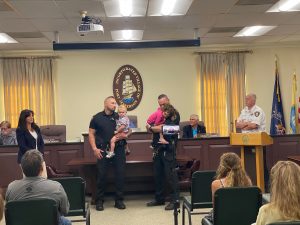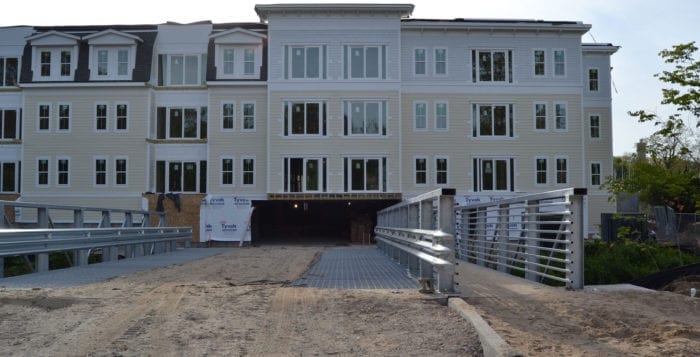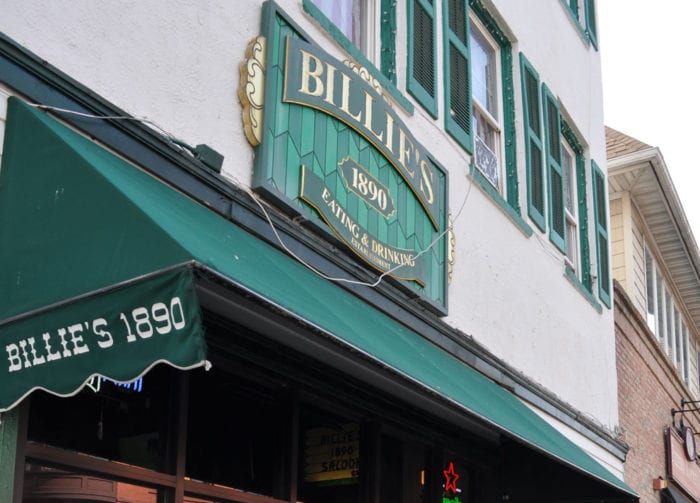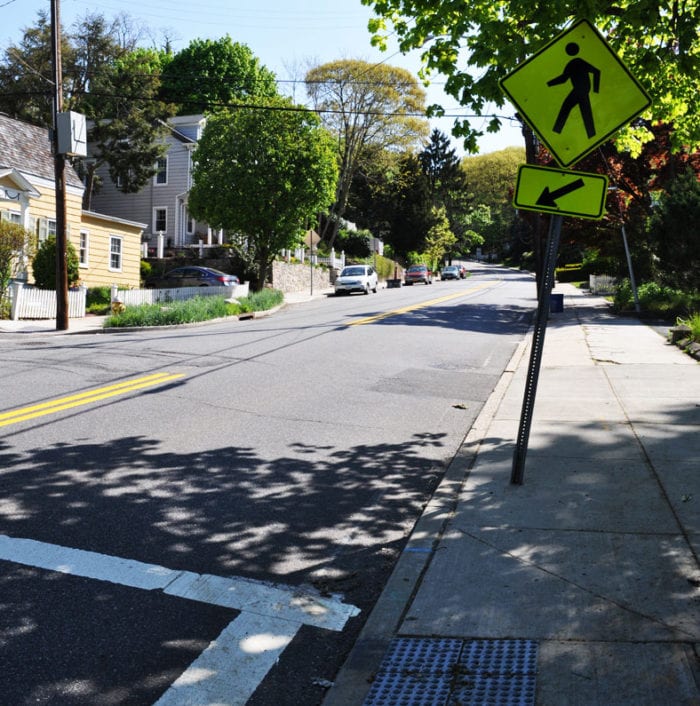By Alex Petroski
A decades-old Port Jefferson institution that has remained closed since a June 2016 fire could be moving toward reopening, thanks in large part to an agreement between Port Jefferson Village and the building owner.
Billie’s 1890 Saloon had to close its Main Street doors June 27 last year after a fire in the kitchen caused severe damage, and exposed several building code violations that required remedy before the business could be reopened. During an Aug. 7 village board meeting, Mayor Margot Garant and the board of trustees approved a resolution that should expedite the process.
Among the code violations — of which there were about 20 — from the village’s building department was a requirement for the installation of a bathroom that meets requirements laid out by the Americans with Disabilities Act. An ADA compliant bathroom would not fit on the main level of the building, which houses the bar, according to Garant, so instead, the building owner planned to move the kitchen to the basement and turn the former kitchen on the main floor into the new restrooms.
Because of the change of use of the building, an aspect of the village code was triggered requiring additional parking spaces be added. Being that no space was available on the property for the additional parking, the building owner could instead submit a payment in lieu of parking to the village, which is allowed under the code.
Instead of squaring the requirement with actual dollars, the village and building owner Joey Zangrillo entered into an agreement for Zangrillo to deed over land in the rear of the property, which is currently used for parking, over to the village. As a result, Zangrillo will essentially own the property that houses the building, and the remainder of the parcel will be deeded to the village.
“In talking with parking committee and Larry [LaPointe, deputy mayor], we find the land to be extremely valuable,” Garant said during the meeting. “You can’t really put a price point or tag on the size of the lot.”
The deal would be subject to approval by Suffolk County prior to finalization to ensure moving the kitchen to the basement is adherent to county regulations. As a result of the deal, Billie Phillips — the original business owner for more than 35 years who was not at the helm at the time of the fire but has since entered a lease agreement with Zangrillo to reopen Billie’s 1890 Saloon — said he is hoping to be ready to reopen in early 2018.
“This is a more than fair bargain from the village’s point of view,” said LaPointe, who is also a trustee, during the meeting. According to Garant, the area being acquired by the village is used as an informal parking area, though it will now have actual spaces painted and associated with municipal meters.
Brian Egan, the village attorney, explained that the difference in owning municipal parking spaces and leasing them to property owners from the village’s perspective is that it prevents disputes, confusion and potential lawsuits when property changes hands.
“Unlike every other municipality you would assume owns the municipal parking fields, we are a patchwork in that back parking lot,” he said.
Zangrillo praised Garant and the village for their hard work in helping to facilitate the deal and get the establishment back on track for reopening.
“The village has been nothing but extremely helpful to me as a landlord,” he said in a phone interview. “I’m looking forward to many, many years of a great relationship with my tenant. I’m looking to get Billie’s up and running for my concerned friends and villagers who have been asking.”









